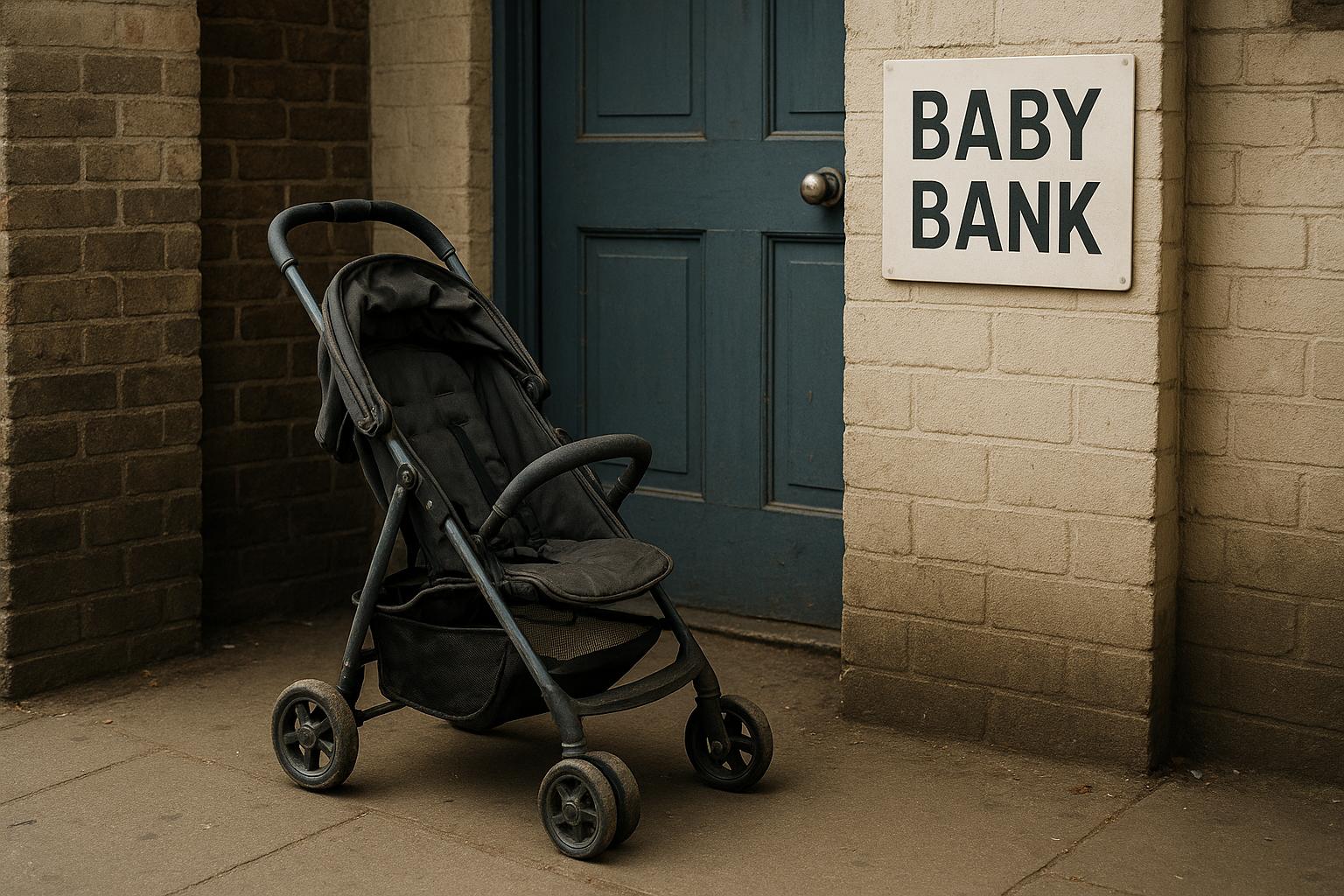Charities in London are witnessing an alarming rise in families relying on baby banks as the high cost of living continues to push even working parents into crisis. Baby banks, which provide essential items such as clothes, nappies, and formula to parents who cannot afford them, are facing unprecedented demand. Thea Jaffe, a mother of three who has turned to these services during two pregnancies, described the support as life-saving, a sentiment echoed by many families struggling to cope.
The Baby Bank Alliance, which represents the baby banks across the UK, reports a dramatic increase in usage over recent years. Their 2024 Impact Report highlights that 180 baby banks supported around 220,000 families last year, distributing over 3.5 million essential items—a 25% rise from the previous year. This continues a trend of increasing referrals, with a 35% surge reported between 2023 and 2024. Despite the scale of their work, two-thirds of the baby banks represented by the Alliance cannot meet all referrals due to limited resources, exposing the gap between need and supply.
This surge is intricately linked to the broader economic pressures faced by families, especially those who are working yet unable to make ends meet. According to children's charity Action for Children, 300,000 working families live in poverty in the UK, with 18% of them residing in London. Families with three or more children are particularly affected, a situation exacerbated by government policies such as the two-child benefit cap. The Alliance strongly advocates for the removal of this cap, asserting it worsens child poverty and restricts families' ability to provide basic needs.
Inflation has disproportionately affected key baby products, with prices for formula rising by an average of 24% in 2023 and nappies and baby wipes increasing by up to 60% and 36% respectively. For parents like Jaffe, who was earning over £40,000 annually yet still found herself relying on charity, the financial strain is intensified by skyrocketing childcare costs. Nursery care in inner London averages £316.33 per week, even after government childcare entitlements are applied. Jaffe described this as a crisis threatening the ability of working parents to sustain employment while raising children.
Volunteers and campaigners at baby banks highlight a troubling but often hidden reality: many working families are forced to seek charity assistance, often out of necessity rather than choice. Yosr Bahr-Al-Ulum, a volunteer at Little Village, London's largest baby bank network, noted a marked increase in referrals from working parents on low or precarious incomes. She also emphasised the stigma around seeking help, which can delay families accessing essential support until they reach breaking point.
Campaigners agree that the rising reliance on baby banks signals systemic failures in social support and economic policy. Rachel Walters from End Child Poverty UK warned that the surge in charity use reflects desperation among working families unable to afford basics, particularly those on minimum wage. Labour MP Bell Ribeiro-Addy condemned government austerity measures such as the two-child benefit cap and cuts to Sure Start centres for exacerbating poverty and inequality. She urged the government to take decisive action in the forthcoming Autumn Budget, including scrapping the two-child cap, which she described as the "single most effective intervention" to alleviate child poverty.
In response to these concerns, the government has pledged to finalise a Child Poverty Strategy in the autumn, along with investments in family support through Best Start Family Hubs, expanded free school meals, and a £1 billion crisis support package. A spokesperson reaffirmed the government's commitment to ensuring every child gets the best start in life.
However, for families like Thea Jaffe's, the immediate reality remains one of financial stress and uncertainty. Despite steady employment and community support, ongoing childcare and housing costs continue to outpace earnings, forcing many parents to depend on the goodwill of charities to provide essentials for their children. The growing demand on baby banks not only highlights the cost of living crisis but underscores urgent questions about the adequacy of social safety nets for families in modern Britain.
📌 Reference Map:
- Paragraph 1 – [1] (South West Londoner)
- Paragraph 2 – [2], [6], [7] (Baby Bank Alliance)
- Paragraph 3 – [1], [2], [7] (South West Londoner, Baby Bank Alliance)
- Paragraph 4 – [1] (South West Londoner), [5] (The Independent)
- Paragraph 5 – [1] (South West Londoner)
- Paragraph 6 – [1] (South West Londoner)
- Paragraph 7 – [1] (South West Londoner)
- Paragraph 8 – [1] (South West Londoner)
- Paragraph 9 – [1] (South West Londoner), [4] (BBC News)
- Paragraph 10 – [1] (South West Londoner)
- Paragraph 11 – [1] (South West Londoner)
- Paragraph 12 – [1] (South West Londoner), [2], [6] (Baby Bank Alliance)
- Paragraph 13 – [1] (South West Londoner)
- Paragraph 14 – [1] (South West Londoner)
- Paragraph 15 – [1] (South West Londoner)
Source: Noah Wire Services
